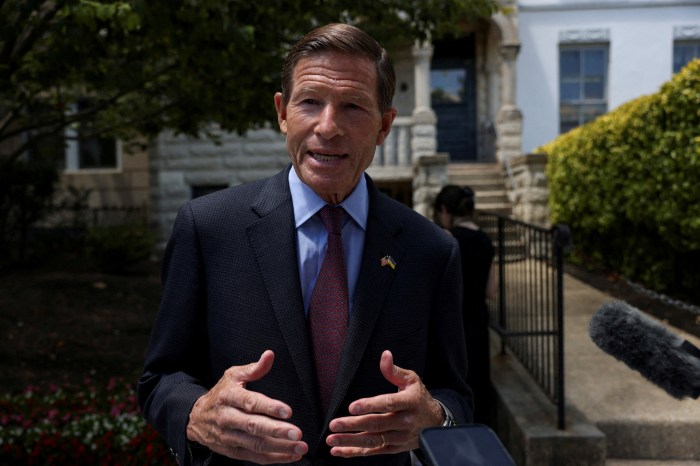LONDON (Reuters) -Classified documents from Britain’s defence ministry containing details about a British warship and Russia’s potential reaction to its passage through the Black Sea have been found at a bus stop in southern England, the BBC reported on Sunday.
The BBC said the documents, almost 50 pages in all, were found “in a soggy heap behind a bus stop in Kent early on Tuesday morning” by a member of the public, who wanted to remain anonymous.
The Ministry of Defence said it had been informed last week of “an incident in which sensitive defence papers were recovered by a member of the public”.
“The department takes the security of information extremely seriously and an investigation has been launched. The employee concerned reported the loss at the time. It would be inappropriate to comment further,” a spokesperson said.
Russian foreign ministry spokesperson Maria Zakharova mocked the British government on social media channel Telegram, saying: “London has used a number of lies to cover up the latest provocation. 007 (James Bond) is no longer the same.”
“And now a riddle-like question for the British parliament, why do we need ‘Russian hackers’ if there are British bus stops?”
Britain’s main opposition Labour Party said the discovery of the documents by a member of the public was “as embarrassing as it is worrying for ministers”.
Labour’s defence policy chief John Healey said ministers needed to confirm that national security had not been undermined or security operations affected and that “procedures are in place to ensure nothing like this happens again”.
The BBC reported that the documents, which included emails and PowerPoint presentations, related to the British warship Defender, which this month sailed through waters off the Crimean peninsula, a region Moscow annexed from Ukraine in 2014.
Russia said on Wednesday it had fired warning shots and dropped bombs in the path of the ship to chase it out of what the Kremlin says are its territorial waters but which Britain and most of the world say belong to Ukraine.
It later summoned the British ambassador in Moscow for a formal diplomatic scolding over what it described as a provocation.
Britain rejected Russia’s account of the incident. It said it believed any shots fired were a pre-announced Russian “gunnery exercise”, and that no bombs had been dropped.
It confirmed the destroyer had sailed through what it said were Ukrainian waters, describing its path as “innocent passage” in accordance with international law of the sea.
The BBC said the documents suggested the ship’s mission was conducted in the expectation that Russia might respond aggressively.
(Reporting by Elizabeth Piper in London and Gabrielle Tetrault-Farber in Moscow; Editing by Catherine Evans and Pravin Char)

























